Importance of Quality Control in Metal Spraying in Perth
Quality Control in Metal Spraying.
Metal spraying, a critical process utilised across various industries in Perth, demands a rigorous approach to quality control to ensure superior outcomes. In this article, we’ll explore why quality control is not just a compliance measure but a fundamental component that enhances the effectiveness and durability of metal sprayed products.
Understanding Metal Spraying
Metal Spraying in Perth
Perth has emerged as a hub for advanced industrial techniques, with metal spraying at the forefront. This process involves applying a metallic coating to surfaces for protection against corrosion, wear, and tear, or to restore dimensions of engineering components.
As a mining State, quality control in metal spraying is paramount in Perth and WA. It ensures that each phase of the spraying process adheres to strict standards, guaranteeing the structural integrity and functionality of the coated items.
Process & Applications
Metal spraying, also known as thermal spraying, involves melting a source material, typically in wire or powder form, and then spraying it onto a surface where it cools and solidifies to form a protective coating. From aerospace to automotive and marine environments — and especially engineering and mining in WA — metal spraying plays a crucial role. It provides solutions for surface enhancement and part repair, extending the life and performance of critical components.
Benefits of Quality Control in Metal Spraying
1. Boosts Structural Integrity & Longevity
A part of quality control involves ensuring that the coatings applied are robust and adhere to the base materials. This is crucial because it prevents the coating from peeling, cracking, or wearing unevenly, which could undermine the structural integrity of the component.
For industries such as construction, the integrity of each piece could impact safety and operational efficiency. As such, rigorous quality control ensures that every sprayed component can withstand physical stresses and environmental conditions over extended periods. This longevity reduces the need for frequent replacements or repairs, providing economic benefits and enhanced safety.
2. Improves on Performance & Functionality
The performance of metal sprayed components depends on the uniformity and quality of the application. Quality control measures, such as precise application techniques and thorough inspection processes, ensure that coatings meet the required thickness and surface smoothness.
For instance, in the mining industry, metal spraying reduces friction and wear in components such as pistons and cylinders. Properly controlled metal spraying enhances the functionality of these components so they perform optimally within the engine.
3. Compliant with Industry Standards & Regulations
Compliance with industry standards and regulations is not just a bureaucratic checklist — it’s a critical component of operational integrity, and something we take very seriously at New Metal Surfaces. These standards ensure that our metal spraying activities promote safety, reliability, quality, and efficiency. For example, we adhere to ISO standards like ISO 9001 — a quality management standard that ensures our services are quality controlled and that we have a system in place for managing and reviewing our processes. This helps us deliver the best quality that we can.
By adhering to these standards, we ensure legal compliance for ourselves as well as our customers, bolstering their reputation as reliable and safe operators. Quality control ensures that every component sprayed at New Metal Surfaces meets these demands.
4. Reduction of Defects & Rework
When precision is paramount, even minor flaws in coating can lead to significant failures. Quality control measures minimise defects and the subsequent need for rework, both of which are costly and time-consuming. When each phase of the metal spraying process — from material selection and preparation to the actual spraying — is closely monitored and controlled, the likelihood of defects such as splits, cracks, porosity, or uneven coating thickness is significantly reduced.
We have quality control checkpoints throughout the spraying process to allow for early detection of potential issues. This proactive quality management means we can facilitate immediate corrective actions before they escalate into larger, systemic problems that would require rework.
5. Cost Savings in the Long Run
Our quality control systems lead to substantial cost savings over time for our customers. By ensuring that each sprayed component adheres to the highest quality standards, companies reduce the frequency of maintenance and replacement of parts.
This is particularly crucial in sectors where equipment and machinery are subjected to harsh operational conditions, such as mining or heavy manufacturing. Durable, high-quality coatings extend the lifespan of these components, thereby decreasing the overall cost of ownership through fewer disruptions in operations and reduced labor for repairs.
Key Components of Quality Control in Metal Spraying
Material Selection & Preparation
The initial step in ensuring quality in metal spraying processes involves the meticulous selection and preparation of materials. The choice of material depends on:
- The desired properties of the final coating.
- The specific requirements of the substrate.
- The intended application.
For instance, materials such as zinc, aluminum, and copper provide different protective qualities, from corrosion resistance to electrical conductivity. Preparing these materials involves cleaning and sometimes pre-treating the substrate to enhance adhesion.
This might include abrasive blasting to prepare the surface for spraying by creating a rough surface that the coating will better adhere to. Additionally, the physical form of the material (powder or wire) must be chosen based on the specific spraying equipment and desired coating characteristics. This thorough preparation ensures that the subsequent metal spraying process is optimised for adhesion, coverage, and overall quality.
Precision in Spraying Techniques
A precise application technique is critical to achieving a high-quality finish. This encompasses several aspects:
- The angle of application.
- The distance between the spray gun and the substrate.
- The speed of application.
These factors need to be meticulously controlled to ensure uniform thickness and optimal material properties of the coating. Advanced spraying techniques, such as high-velocity oxygen fuel (HVOF) spraying, require operators to maintain strict control over the spraying parameters. This precision ensures that the coatings are applied evenly without excessive buildup or thin patches, which could compromise the coating’s protective qualities. Our technicians are proficient in these techniques and understand the nuances of controlling the spray process for different materials and shapes.
For Better Quality, Spray with New Metal Surfaces.
At New Metal Surfaces, quality control is not just a procedural step. It’s a commitment to excellence that permeates every level of our metal spraying processes. Contact us today to ensure your metal spraying needs are met with the highest standards of quality, reliability, and professionalism.


